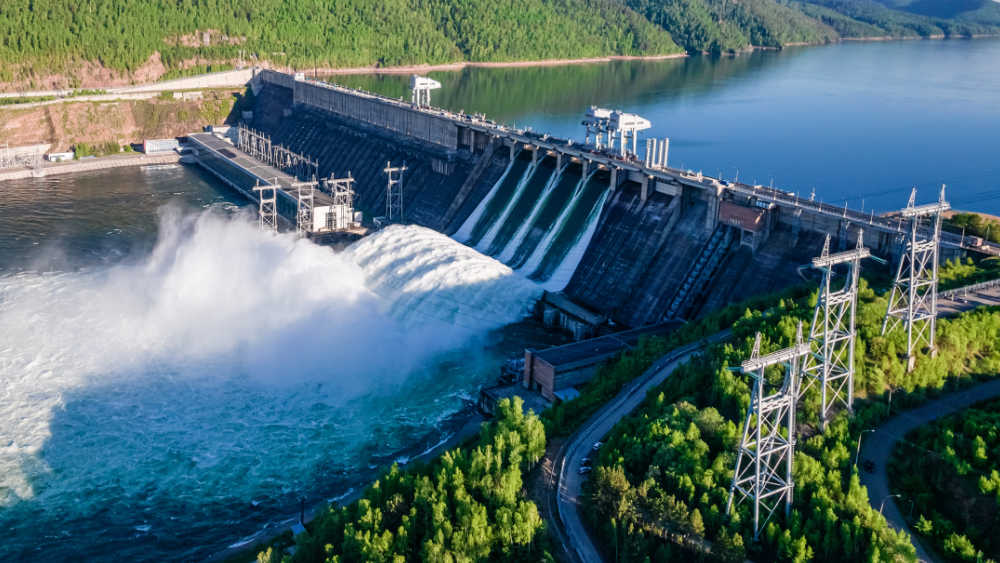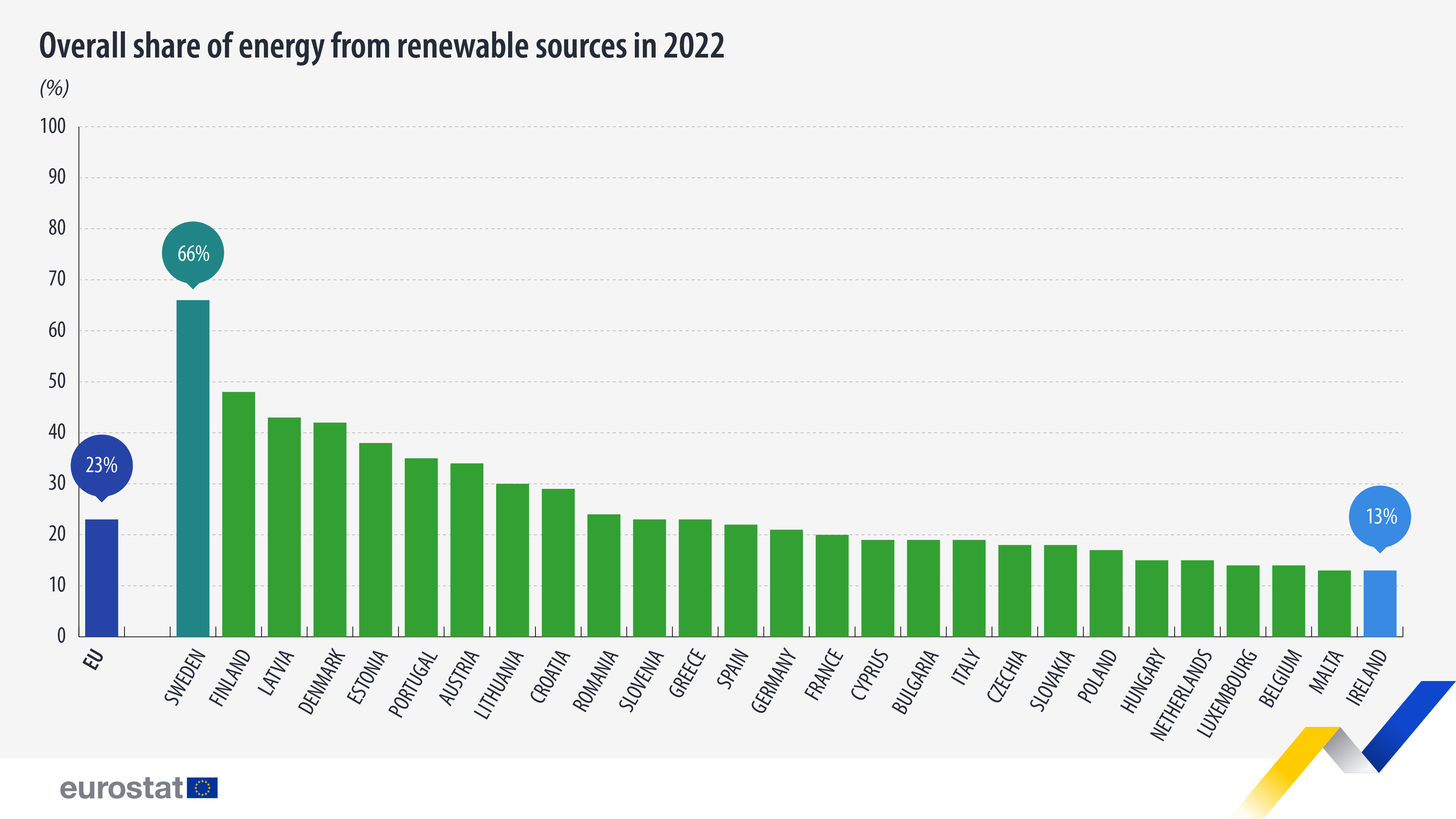23% of energy consumed in 2022 came from renewables

The share of renewable sources in gross final energy consumption at the EU level reached 23.0% in 2022. Compared with 2021, this represents an increase of 1.1 percentage points (pp).
The revised Renewable Energy Directive has revised upwards the EU’s 2030 renewable energy target from 32% to 42.5% (with an aim to increase it to 45%). Therefore, EU countries need to intensify their efforts to collectively comply with the new EU target for 2030, which requires increasing the share of renewable energy sources in the EU’s gross final energy consumption by almost 20 pp.
Sweden - the highest share of energy from renewable sources
Sweden leads among EU countries, with nearly two-thirds (66.0%) of its gross final energy consumption in 2022 derived from renewable sources. Sweden relied primarily on hydro, wind, solid and liquid biofuels, as well as heat pumps. Finland (47.9%) followed, also relying on hydro, wind and solid biofuels, ahead of Latvia (43.3%), which depended mostly on hydro. Both Denmark (41.6%), followed by Estonia (38.5%), got most of the renewables from wind and solid biofuels. Portugal (34.7%) relied on solid biofuels, wind, hydro and heat pumps, while Austria (33.8%) utilised mostly hydro and solid biofuels.
Source dataset: nrg_ind_ren
The lowest proportions of renewables were recorded in Ireland (13.1%), Malta (13.4%), Belgium (13.8%) and Luxembourg (14.4%).
In total, 17 of the 27 EU members reported shares below the EU average of 23.0% in 2022.
For more information
- Statistics Explained article on renewable energy
- Thematic section on the short assessment of renewable energy resources (SHARES)
- Thematic section on energy
- Database on energy
If you have any queries, please visit our contact us page.

